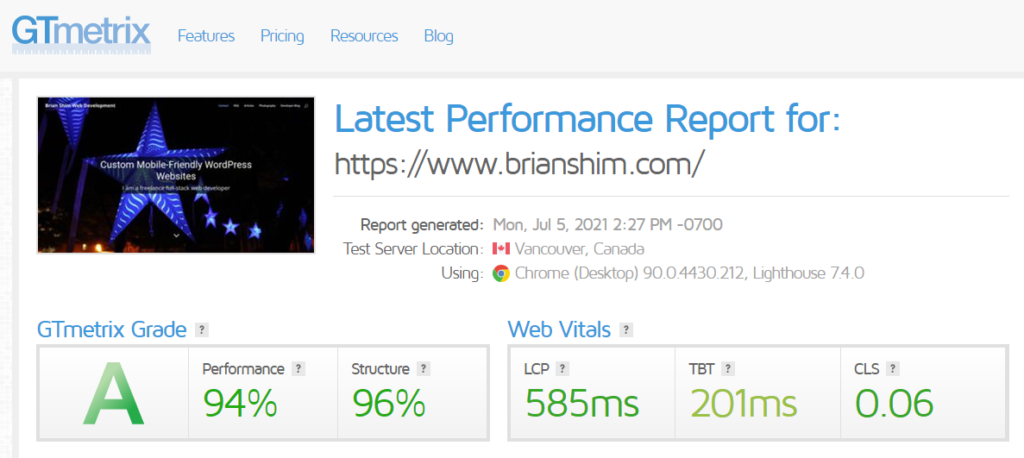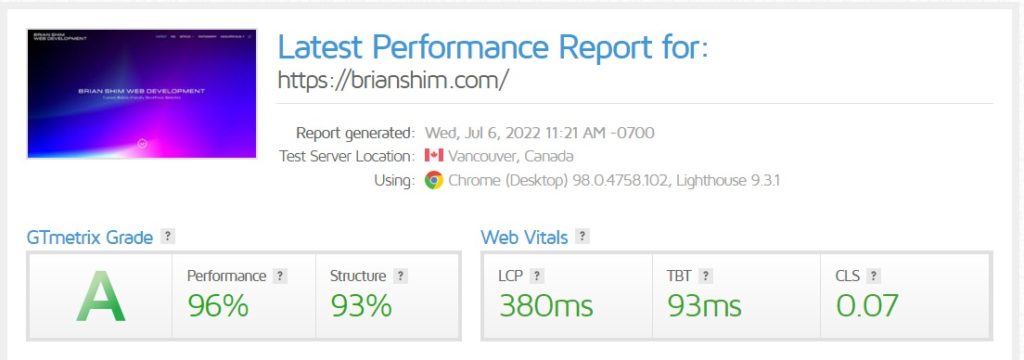If you ask a WordPress developer what their favorite builder theme is, you’ll get a very opinionated answer, kind of like asking a photographer what brand of camera is best, or a gamer what console is best. The truth is, there are a lot of great themes out there. Many of them can be used to create great sites in the hands of an experienced developer.
These are the reasons that I use the Divi Builder theme for many of my client WordPress sites.
Disclosure: Some of the links on this page are affiliate links. This means if you click on the link and purchase the item, I will receive an affiliate commission at no extra cost to you. I test or research each service before endorsing it. I own this site and the opinions expressed here are mine.
What I Love About Divi
1. It’s easy for clients to Learn
Every WordPress builder has its learning curve, but I think Divi is one of the easier ones to learn. The Divi Visual Builder lets you edit in WYSIWYG mode, which is great for beginners.
The reason why ease of use is so important to me is that I like to empower my clients to edit their own sites. I wouldn’t dare expect my clients to learn how to use some of the other builders out there. The whole point of WordPress is to let people edit their sites without hiring a developer!
2. It Looks Great Out of the Box
Elegant Themes has always had a reputation for making really great-looking themes. Divi is no different. Most of the modules look great out of the box.
3. It Has the Right Amount of Adjustability
There is a tradeoff between how much adjustability a theme has vs. how cluttered and overwhelming the user interface is. You could make every single thing adjustable, but then the theme would be a bloated mess. The perfect theme makes the items that need to be adjustable, adjustable while leaving the rest fixed.
I’d say that Divi strikes a pretty good balance between adjustability and keeping the user interface manageable. Sure, there are a few things that I would love to have more control over (like feeds), but for many of those, I can adjust using CSS or custom code in a pinch.
The Divi Theme Builder lets you build completely custom blog templates (or any other type of template). This is a huge deal.
4. I Can Develop Polished Sites Using Divi Really Fast
Because of many of the reasons I’ve mentioned, I can develop polished sites using Divi really fast. My clients are often amazed at how quickly I can get their sites done – and they really appreciate it.
5. It Has Great Documentation and Support
Divi is one of the most popular WordPress themes around, so it has tons of documentation, informational blog posts, videos, and third-party plugins. If you need to make Divi do something, you can usually just Google it, and someone has found a solution or created a plugin to do it.
6. It Doesn’t Break When Updating
Because Divi has been around for so long, a lot of the bugs have been ironed out. Some of the newer themes have some great features, but I’ve found some to be buggy. Divi just works and is reliable.
Probably the biggest problem I’ve encountered is that some older Divi sites can’t use the latest version of the Divi Builder editor (called “The Latest Divi Experience”). This is not really a show-stopper though, because the Visual Builder still works, and it’s only happened in a few cases for me.
Other than that, I’ve rarely had a site break after a Divi theme update. With certain other themes (i.e., WP Bakery), I dread pressing the “update” button.
7. You Pay For It Once (Lifetime Deal)
I love software that you pay for once, as opposed to having to pony up more cash every year for a subscription, even though Divi would be well worth paying for every year. Although there is no free version, Divi has a lifetime deal which is a steal if you use it on multiple sites.
What Detractors Say
Probably the biggest complaint you’ll hear from some developers about Divi is that it is “bloated”. It’s true that full-featured builder themes like Divi and Elementor generate lots of levels of div tags. Detractors will also point to poor website speed test grades for builders like Divi and Elementor.
It’s true that Divi isn’t the fastest-loading theme around by any means, but you can get really fast Divi site load times (i.e., around one second) if you use caching and premium-quality hosting. You can also get an “A” score on GTmetrix, an industry-standard measurement tool for website performance.
Here are the GTmetrix scores for this site’s home page, done in Divi showing an “A” grade and 1.1 second paint time to prove it!

UPDATE: Here’s an updated report after Divi’s version 4.9 performance update, which speeds things up even more!

When Divi Might Not Be the Best Choice
If you need to create a very customized site with unorthodox design elements, Divi might not be the right choice. You may need to with a builder with more customizability like Oxygen or perhaps a full-custom theme made from scratch.
Divi specifically lags behind Elementor and Oxygen when it comes to the customizability of feeds. There is no built-in blog feed layout with the image on the left and the excerpt on the right; there’s only full-width and masonry-style. I compensate for this by using CSS or by writing my own feed plugins in PHP. If you’re not a programmer and need really customized feeds, then you might want to go with a different builder.
Finally, if your client is obsessed with site load time, then you should probably look for a solution other than Divi (or Elementor). Check out some of my other recommended themes below, or code your theme from scratch, or consider using WordPress as a static site generator; you’ll get insanely fast load times.
Other Recommended Themes
If you are creating a really simple personal blog or WooCommerce store, I like GeneratePress. It’s easy to use, blazing-fast and has accessibility built-in. It’s not nearly as customizable as Divi though, even with the paid add-ons.
If you need more customizability than GeneratePress offers, I’d recommend Kadence. It’s also super fast and accessible. It’s a great theme to use with Gutenberg when you don’t need the full customizability of Divi.
A Word About Elementor
No discussion on WordPress builders would be complete without mentioning the other industry-standard builder out there, Elementor, which is used by many WordPress professionals.
I actually like Elementor. If Divi didn’t exist, I’d probably be using Elementor. In some ways, it has more adjustability than Divi and in other ways, Divi is more adjustable. But, I find Divi to be easier to learn and use, which enables some of my clients to update their own sites. I like the fact that Divi is a theme rather than a plugin like Elementor. With Elementor, you have to choose a theme to use it with. Also, Elementor Pro has an annual fee; there is no lifetime deal like Divi has.
Conclusion
So, I’ve tried to give the pros and cons of the Divi Builder, along with honest comparisons to other builders, and the reasons I ultimately chose Divi. If you’re interested in a super-powerful drag-and-drop WordPress builder that is relatively easy to learn and has lots of support and add-ons available, check out Divi!

I am a freelance web developer and consultant based in Santa Monica, CA. I’ve been designing websites using WordPress and from scratch using HTML, CSS, PHP, and JavaScript since 2010. I create websites and web applications for businesses, nonprofits, and other organizations. I have a degree in Electrical Engineering (BSEE) from California Institute of Technology and a degree in Engineering Management (MSEM) from Stanford University.









